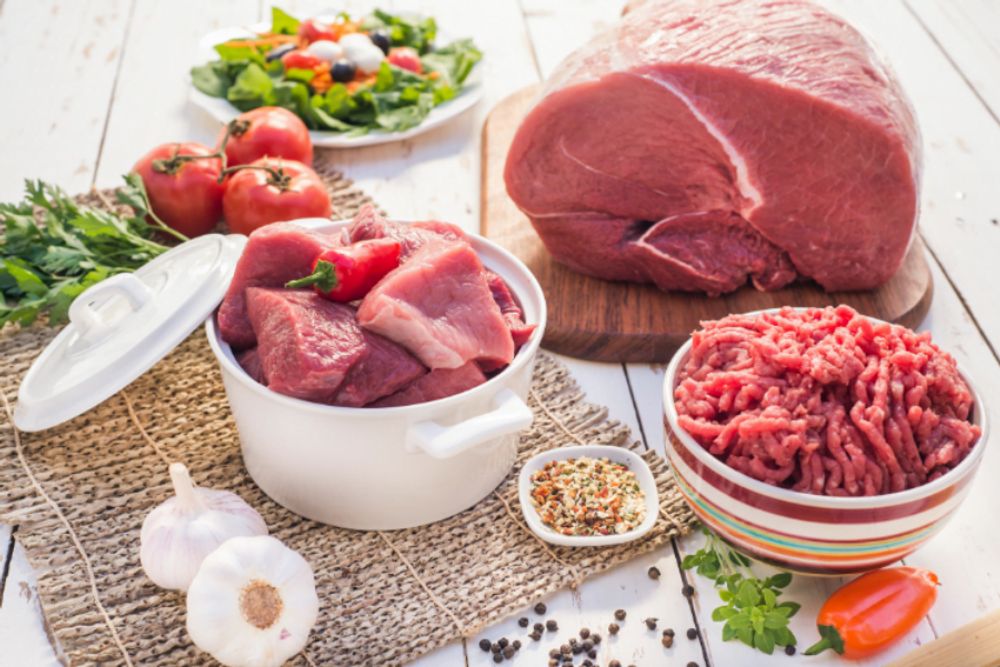

Eggs are beneficial to your health. Eggs are unhealthy. Red meat should be avoided. Red meat should be consumed in moderation. Butter is no longer available. Butter has made a comeback. You're not alone if your mind is racing. According to a recent survey conducted by the International Food Information Council Foundation, 80% of individuals are unsure about nutrition. Of course, headlines play a role, but disinformation on social media, as well as food marketing, exacerbates the problem.


When you eat predominantly plant foods, your health markers improve, according to research. Lower blood pressure, triglyceride levels, glucose, and waist circumference are all advantages, which can mean a lower risk of a variety of ailments, including heart disease and diabetes.
Eating a plant-based diet isn't a new concept. It's been studied for decades, and evidence suggests that a plant-based diet can help mitigate many of the health issues that arise with time. You should eat largely plant-based foods no matter what kind of dietary pattern you follow. That means a variety of vegetables, fruits, nuts, seeds, pulses, and whole grains should make up 75 percent of your plate.

Despite headlines to the contrary this fall, the majority of scientific data supports limiting or avoiding certain foods. In truth, the study that gave rise to these headlines was heavily challenged and contested. Consider how you might cut back on red meat if you enjoy it but want to minimise your risks of dying early from a variety of factors, such as heart disease and cancer. Maybe it means eating a lesser portion of red meat on those occasions when you want it, or eating it less frequently. Consider what else you'll be having with your steak dinner or at other mealtimes. If you eat a lot of plant foods, a little red meat can be fine.

In the battle of fat vs. carbs, healthy comes out on top. In other words, you can be healthy on a low-fat, high-carb diet just as you can be healthy on a high-fat, low-carb diet. The most important thing is to choose your fat and carb sources carefully. We're well aware that carbs from vegetables, starchy vegetables (like potatoes), fruits, and pulses, which all provide antioxidants, vitamins, minerals, and fibre, are distinct from highly processed carbs, which provide little, if any, whole food nutrition. There is also widespread agreement that fat is not the enemy, and that fats derived from plants and fish have anti-inflammatory properties.

We've discovered that severely processed meals, such as processed meats, refined grains, and a variety of snacks and sweets, promote disease by inducing inflammation, and that diets heavy in heavily processed foods are linked to greater body weights and lower health. When possible, choose whole or lightly processed meals whenever possible. That involves scrutinizing ingredient lists and attempting to select healthy substitutions for foods heavy in sodium, sugar, artificial sweeteners, colors, and preservatives, all of which indicate that a product has been excessively processed.
If the above factors are prioritized, anyone can benefit from a variety of eating patterns. Eating is a highly personal activity that entails much more than simply refueling your body or sitting down to a dish of nourishment. Food can provoke an emotional response, providing a sense of comfort, stress reduction, or delight, and it can be nostalgic, part of social and religious rituals. A meal is rarely just one thing, and knowing all of the things it is to you, as well as your own non-negotiable (what you won't give up), might help you find a diet that you can stick to.
Your neighbour may be successful on a ketogenic diet, and your coworker may enjoy being a strict vegetarian, but if you're a kosher vegetarian, these diets provide too many difficulties. This is an extreme example, but it's supposed to demonstrate how crucial it is to understand your individual needs before determining the ideal eating schedule for you. Different eating patterns are now widely recognised as being acceptable for various contexts, but only if you can follow the instructions. Some people thrive on intermittent fasting, while others can't stand the hunger or limits that come with confining food to specific time periods each day.
Determine what type of eating routine sounds most achievable to you and then attempt to stick to it in the healthiest way possible when it comes to nourishing your body. That might imply different things to different people, so do what you want.




